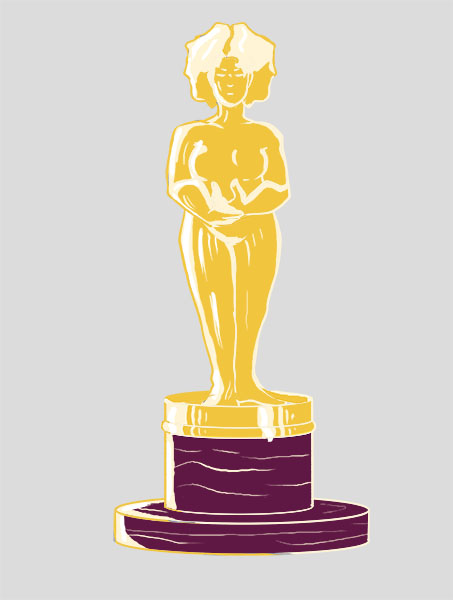The 2020 Academy Awards will take place on Feb. 9 and honour the cinematic achievements of 2019. With the nominations announced on Jan. 13, the same conversations about the awards are being had amongst film fans. Chief among them always is this: why are the Oscars so bad at highlighting the cinematic achievements of women and people of colour?
Of the nine best-picture nominees, one is a foreign language film. Parasite, directed by Bong Joon Ho, is one of only three films foreign language films to be nominated for the best picture award in the 2010s, with the other being 2012’s Amour, which lost best picture to Argo, and 2018’s Roma, which lost to Greenbook. The other standout in this category is Greta Gerwig’s adaptation of Little Women, a movie about women directed by a woman which was not nominated for best director. When it comes to the other films nominated for best picture, they hit on similar beats that harken back to the Academy’s fondness for certain motifs: movies about men, war, aging, Hollywood, and times long since past. Most of the best picture nominees, including Little Women, are period pieces.
Surveying past best-picture winners, I don’t think Little Women will win. I have not seen it, I’ve only heard good things about it, but I don’t think it will win, mostly due to the fact that there have been only three films that have won best picture since the year 2000 that have had a female lead. Four if you count Crash, which is a can of worms I do not feel qualified to open. Adding to the fact that a film with two or more female leads has not won since Chicago in 2003, I don’t see it being a real contender. On that note, I expect Sam Mendes’ WWI film, 1917 to take the prize. Mostly owing to the fact that 16 war movies have won best picture since the beginning of the Academy Awards.
When looking at the data, one notes the recurring trends that best picture nominees have in common. The Academy is fond of certain themes, and films following those trends are awarded again and again. This is because, for much of the Academy’s life, the voter pool has been overwhelmingly white men that are presumed to be both heterosexual and cisgender. Even after efforts to diversify, the 9,000 members remain 68 per cent male and 84 per cent white.
Despite being unmentioned in the Oscars’ conversation, 2019 was a very good year for women in movies. Women directed a record high amount of movies in 2019, which is 15 per cent of the total films released. In 2019, there was also a high number of female protagonists, up from 31 per cent in previous years to 40 per cent. While that sounds better, when you take into account that 70 per cent of those protagonists were white, with 18 per cent being black, six per cent being Latina, and five per cent being Asian, it is a reminder that people of colour in general and women of colour in specific still have significant barriers to getting major roles in film.
When posing the question “Do the Oscars Matter?” YouTuber Renegade Cut ran through how films can qualify for a nomination, the campaigns on behalf of film studios in favour of certain movies, and the representation that comes from the films that are allowed to be in the conversation. The video is fascinating and goes into far more depth than I can here. The conclusion he reached for the question of “Do the Oscars Matter?” was this: kind of. If anything, it reminded me just how much of a corporate machine awards associations are.
The Academy Awards has a long way to go toward giving underrepresented voices a platform. So this year, more than anything else, ask yourself what’s being left out of the conversation.
Illustration: Kayt Hine


